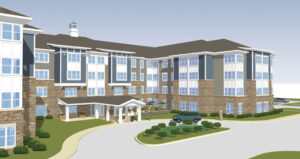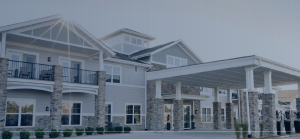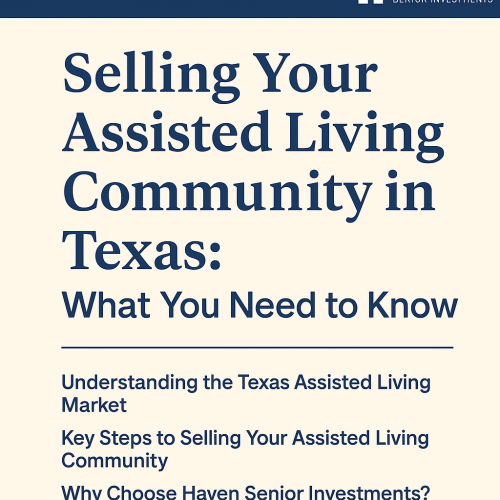EFFECTIVE NEBRASKA HEALTH AND HUMAN SERVICES ALF 4/3/07 REGULATION AND LICENSURE 175 NAC 4
Complex nursing interventions means interventions which require nursing judgment to safely alter standard procedures in accordance with the needs of the resident, which require nursing judgment to determine how to proceed from one step to the next, or which require a multidimensional application of the nursing process. Complex nursing interventions does not include a nursing assessment.
Department means the Department of Health and Human Services Regulation and Licensure.
Device means an instrument, apparatus, implement, machine, contrivance, implant, in vitro reagent, or other similar or related article, including any component, part, or accessory, which is prescribed by a medical practitioner and dispensed by a pharmacist or other person authorized by law to do so.
Direct care staff means staff who provide assistance with activities of daily living, health maintenance activities, and personal care and does not include housekeeping, maintenance, dietary, laundry, administrative or clerical staff if they do not provide any of the above mentioned assistance.
Direction and monitoring means for the purpose of medication administration, the acceptance of responsibility for observing and taking appropriate action regarding any desired effects, side effects, interactions, and contraindications associated with the medication. Direction and monitoring can be done by a:
1. Competent individual for himself or herself, 2. Caretaker; or 3. Licensed health care professional.
Director means the Director of Regulation and Licensure.
Drug means substances as defined in Neb. Rev. Stat. § 71-1,142.
Dwelling means a building that contains living and sleeping areas, storage room(s), separate room(s) containing a toilet, lavatory, and bathtub or shower; and a kitchen area with a sink and cooking and refrigeration appliances.
Existing facility means a licensed health care facility or a facility whose construction or remodeling plans were approved by the Department prior to the effective date of 175 NAC 4.
Facility means an assisted-living facility as defined.
Five rights means getting the right drug to the right recipient in the right dosage by the right route at the right time.
Food code means the Nebraska Food Code as defined in Neb. Rev. Stat. § 81-2,244.01 and as published by the Nebraska Department of Agriculture, except for compliance and enforcement provisions.
Foreign when applied to corporations means all those created by authority other than that of the State of Nebraska.
Grievance means a written expression of dissatisfaction which may or may not be the result of an unresolved complaint.
Health care facility means an ambulatory surgical center, an assisted-living facility, a center or group home for the developmentally disabled, a critical access hospital, a general acute hospital, a health clinic, a hospital, an intermediate care facility, an intermediate care facility for the mentally retarded, a long-term care hospital, a mental health center, a nursing facility, a pharmacy, a psychiatric or mental hospital, a public health clinic, a rehabilitation hospital, a skilled nursing facility, or a substance abuse treatment center.
Health care service means an adult day service, a home health agency, a hospice or hospice service, or a respite care service.
Health maintenance activities (see definition of Care).
Licensed health care professional means an individual for whom administration of medication is included in the scope of practice.
Licensee means the individual, government, corporation, partnership, limited liability company, or other form of business organization to whom the license is issued. The licensee has the primary responsibility for the overall operation of the assisted-living facility.
Medical practitioner means any licensed physician, osteopathic physician, dentist, podiatrist, optometrist, chiropractor, physician assistant, certified registered nurse anesthetist, advanced practice registered nurse, or certified nurse midwife.
Medication means any prescription or nonprescription drug intended for treatment or prevention of disease or to affect body function in humans.
Medication administration includes, but is not limited to:
1. Providing medications for another person according to the five rights; 2. Recording medication provision; and 3. Observing, monitoring, reporting, and otherwise taking appropriate actions regarding desired effects, side effects, interactions, and contraindications associated with the medication.
Medication aide means an individual who is listed on the medication aide registry operated by the Department as provided for in 172 NAC 95 and 172 NAC 96.
Medication provision means the component of the administration of medication that includes giving or applying a dose of a medication to an individual and includes helping an individual in giving or applying such medication to himself or herself.
Mental abuse means humiliation, harassment, threats of punishment, deprivation, or other actions causing mental anguish.
Misappropriation of money or property means the deliberate misplacement, exploitation, or use of a resident’s belongings or money without the resident’s consent.
NAC means Nebraska Administrative Code.
Neglect means a failure to provide goods or services necessary to avoid physical harm or mental anguish of a resident.
New construction means a facility or a distinct part of a facility in which care and treatment is to be provided and which is enlarged, remodeled or altered in any fashion or is built from the ground up on or after the effective date of 175 NAC 4.
New facility means a facility or a distinct part of a facility in which care and treatment is to be provided and which is not currently licensed. New facility also includes those facilities, which were previously licensed for care and treatment in another licensure category, and which now intend to seek licensure in a different category.
Personal care (See definition of Care.)
Physical abuse means hitting, slapping, pinching, kicking, or other actions causing injury to the body.
Physical restraint means any manual method or physical or mechanical device, material, or equipment attached or adjacent to the resident’s body that he or she cannot remove easily and that restricts freedom of movement or normal access to his or her own body.
Power of attorney for health care means a power of attorney executed in accordance with Neb. Rev. Stat. §§ 30-3401 to 30-3432 which authorizes a designated attorney in fact to make health care decisions for the principal when the principal is incapable. A person holding the power of attorney for health care can make health care decisions to the extent allowed by the terms of the health care power of attorney.
Premises means a facility, the facility’s grounds and each building or grounds on contiguous property used for administering and operating a facility.
PRN means an administration scheme, in which a medication is not routine, is taken as needed and requires assessment for need and effectiveness.
Qualified inspector means a professional architect or engineer licensed to practice in Nebraska, an official or employee of a local jurisdiction authorized by that jurisdiction to make inspections of particular building equipment or systems, or an individual certified by a nationally recognized organization to make such inspections.
Resident means a person residing and receiving care at an assisted-living facility.
Schematic plans means a diagram of the facility or service which describes the number and location of beds; the location of care and treatment rooms, Life Safety Code construction and occupancy classifications locations, fire compartments, and Fire Marshal approved points of safety.
Sexual abuse means sexual harassment, sexual coercion, or sexual assault.
Shelter means to provide lodging for compensation.
Stable or predictable means that a resident’s clinical and behavioral status and nursing care needs are determined to be nonfluctuating and consistent or fluctuating in an expected manner with planned interventions, including an expected deteriorating condition.
Supplement means a product meant to satisfy dietary needs.
Supportive services means those services which support personal care, provision of medications, activities of daily living and health maintenance activities.
Treatment means a therapy, modality, product, device, or other intervention used to maintain well being or to diagnose, assess, alleviate, or prevent a disability, injury, illness, disease, or other similar condition.
Unlicensed direct care staff means personnel who are not licensed or certified under the Uniform Licensing Law or other state laws governing the practice of health care and whose primary responsibility is to manage, supervise, and/or provide direct care to residents. Unlicensed direct care staff includes nursing assistants, medication aides, and other personnel with this responsibility and with job titles designated by the facility.
Verbal abuse means the use of oral, written or gestured language including disparaging and derogatory terms to residents or within their hearing distance.
For the entire document visit: www.sos.ne.gov/rules-and-regs/regsearch/Rules/Health_and_Human_Services_System/Title-175/Chapter-04.pdf
- Assisted Living Broker Grand Island, Assisted Living Broker Lincoln Assisted Living Broker Lincoln, Assisted Living Broker Nebraska Assisted Living Broker Nebraska, Assisted Living Broker Omaha Assisted Living Broker Omaha, Assisted Living Brokerage Assisted Living Brokerage, Assisted Living Brokerage Grand Island Assisted Living Brokerage Grand Island, Assisted Living Brokerage Lincoln Assisted Living Brokerage Lincoln, Assisted Living Brokerage Nebraska Assisted Living Brokerage Nebraska, Assisted Living Brokerage Omaha Assisted Living Brokerage Omaha, Assisted living business for sale in Grand Island Assisted living business for sale in Grand Island, Assisted living business for sale in Lincoln Assisted living business for sale in Lincoln, Assisted living business for sale in Nebraska Assisted living business for sale in Nebraska, Assisted living business for sale in Omaha Assisted living business for sale in Omaha, Assisted living business in Grand Island Assisted living business in Grand Island, Assisted living business in Lincoln Assisted living business in Lincoln, Assisted living business in Nebraska Assisted living business in Nebraska, Assisted living business in Omaha Assisted living business in Omaha, Assisted living facilities for sale in Grand Island Assisted living facilities for sale in Grand Island, Assisted living facilities for sale in Lincoln Assisted living facilities for sale in Lincoln, Assisted living facilities for sale in Nebraska Assisted living facilities for sale in Nebraska, Assisted living facilities for sale in Omaha Assisted living facilities for sale in Omaha, Assisted living facility for sale in Grand Island Assisted living facility for sale in Grand Island, Assisted living facility for sale in Lincoln Assisted living facility for sale in Lincoln, Assisted living facility for sale in Nebraska Assisted living facility for sale in Nebraska, Assisted living facility for sale in Omaha Assisted living facility for sale in Omaha, Assisted living for sale in Grand Island Assisted living for sale in Grand Island, Assisted living for sale in Lincoln Assisted living for sale in Lincoln, Assisted Living for Sale in Nebraska Assisted Living for Sale in Nebraska, Assisted living for sale in Omaha Assisted living for sale in Omaha, Assisted living home for sale in Grand Island Assisted living home for sale in Grand Island, Assisted living home for sale in Lincoln Assisted living home for sale in Lincoln, Assisted living home for sale in Nebraska Assisted living home for sale in Nebraska, Assisted living home for sale in Omaha Assisted living home for sale in Omaha, Assisted living homes for sale in Grand Island Assisted living homes for sale in Grand Island, Assisted living homes for sale in Lincoln Assisted living homes for sale in Lincoln, Assisted living homes for sale in Nebraska Assisted living homes for sale in Nebraska, Assisted living homes for sale in Omaha Assisted living homes for sale in Omaha, Assisted living properties for sale in Grand Island Assisted living properties for sale in Grand Island, Assisted living properties for sale in Lincoln Assisted living properties for sale in Lincoln, Assisted living properties for sale in Nebraska Assisted living properties for sale in Nebraska, Assisted living properties for sale in Omaha Assisted living properties for sale in Omaha, Group Home Broker Grand Island Group Home Broker Grand Island, Group Home Broker Lincoln Group Home Broker Lincoln, Group Home Broker Nebraska Group Home Broker Nebraska, Group Home Broker Omaha Group Home Broker Omaha, Group Home Brokerage Grand Island Group Home Brokerage Grand Island, Group Home Brokerage Lincoln Group Home Brokerage Lincoln, Group Home Brokerage Nebraska Group Home Brokerage Nebraska, Group Home Brokerage Omaha Group Home Brokerage Omaha, Nursing Home Broker Grand Island Nursing Home Broker Grand Island, Nursing Home Broker Lincoln Nursing Home Broker Lincoln, Nursing Home Broker Nebraska Nursing Home Broker Nebraska, Nursing Home Broker Omaha Nursing Home Broker Omaha, Nursing Home Brokerage Grand Island Nursing Home Brokerage Grand Island, Nursing Home Brokerage Lincoln Nursing Home Brokerage Lincoln, Nursing Home Brokerage Nebraska Nursing Home Brokerage Nebraska, Nursing Home Brokerage Omaha Nursing Home Brokerage Omaha, Residential care facility for sale in Grand Island Residential care facility for sale in Grand Island, Residential care facility for sale in Lincoln Residential care facility for sale in Lincoln, Residential care facility for sale in Nebraska Residential care facility for sale in Nebraska, Residential care facility for sale in Omaha Residential care facility for sale in Omaha, Senior Care Realty Senior Care Realty, Senior Housing Broker Grand Island Senior Housing Broker Grand Island, Senior Housing Broker Lincoln Senior Housing Broker Lincoln, Senior Housing Broker Nebraska Senior Housing Broker Nebraska, Senior Housing Broker Omaha Senior Housing Broker Omaha, Senior Housing Brokerage Grand Island Senior Housing Brokerage Grand Island, Senior Housing Brokerage Lincoln Senior Housing Brokerage Lincoln, Senior Housing Brokerage Nebraska Senior Housing Brokerage Nebraska, Senior Housing Brokerage Omaha Senior Housing Brokerage Omaha, Senior housing for sale Grand Island Senior housing for sale Grand Island, Senior housing for sale Lincoln Senior housing for sale Lincoln, Senior housing for sale Nebraska Senior housing for sale Nebraska, Senior housing for sale Omaha Senior housing for sale Omaha, Senior Housing Investment Grand Island Senior Housing Investment Grand Island, Senior Housing Investment Lincoln Senior Housing Investment Lincoln, Senior Housing Investment Nebraska Senior Housing Investment Nebraska, Senior Housing Investment Omaha Senior Housing Investment Omaha, Senior Housing News Grand Island Senior Housing News Grand Island, Senior Housing News Lincoln Senior Housing News Lincoln, Senior Housing News Nebraska Senior Housing News Nebraska, Senior Housing News Omaha Senior Housing News Omaha, senior living broker Grand Island senior living broker Grand Island, senior living broker Lincoln senior living broker Lincoln, senior living broker Nebraska senior living broker Nebraska, senior living broker Omaha senior living broker Omaha, senior living brokerage Grand Island senior living brokerage Grand Island, senior living brokerage Lincoln senior living brokerage Lincoln, senior living brokerage Nebraska senior living brokerage Nebraska, senior living brokerage Omaha senior living brokerage Omaha, Senior living facilities for sale in Grand Island Senior living facilities for sale in Grand Island, Senior living facilities for sale in Lincoln Senior living facilities for sale in Lincoln, Senior Living Facilities for Sale in Nebraska Senior Living Facilities for Sale in Nebraska, Senior living facilities for sale in Omaha Senior living facilities for sale in Omaha, Senior Living Realty Senior Living Realty, seniors housing investment advisors Grand Island seniors housing investment advisors Grand Island, seniors housing investment advisors Lincoln seniors housing investment advisors Lincoln, seniors housing investment advisors Nebraska seniors housing investment advisors Nebraska, seniors housing investment advisors Omaha seniors housing investment advisors Omaha, seniors housing investment Grand Island seniors housing investment Grand Island, seniors housing investment Lincoln seniors housing investment Lincoln, seniors housing investment Nebraska seniors housing investment Nebraska, seniors housing investment Omaha seniors housing investment Omaha






